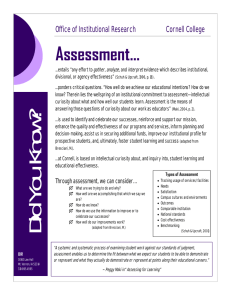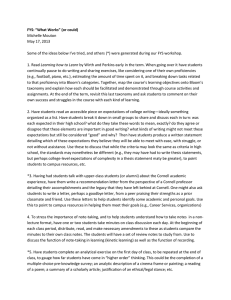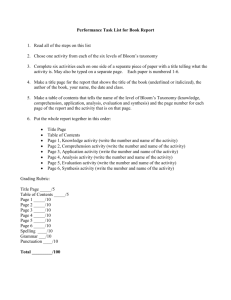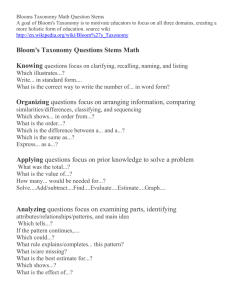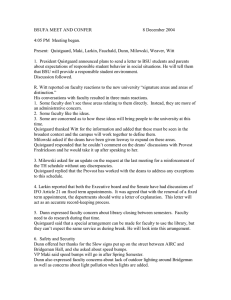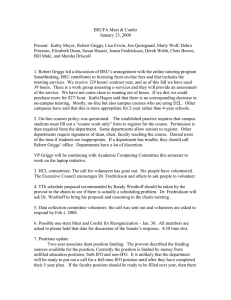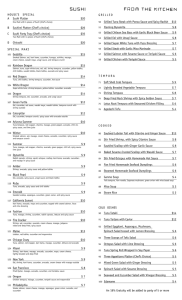Learning Outcomes... Office of Institutional Research Cornell College
advertisement
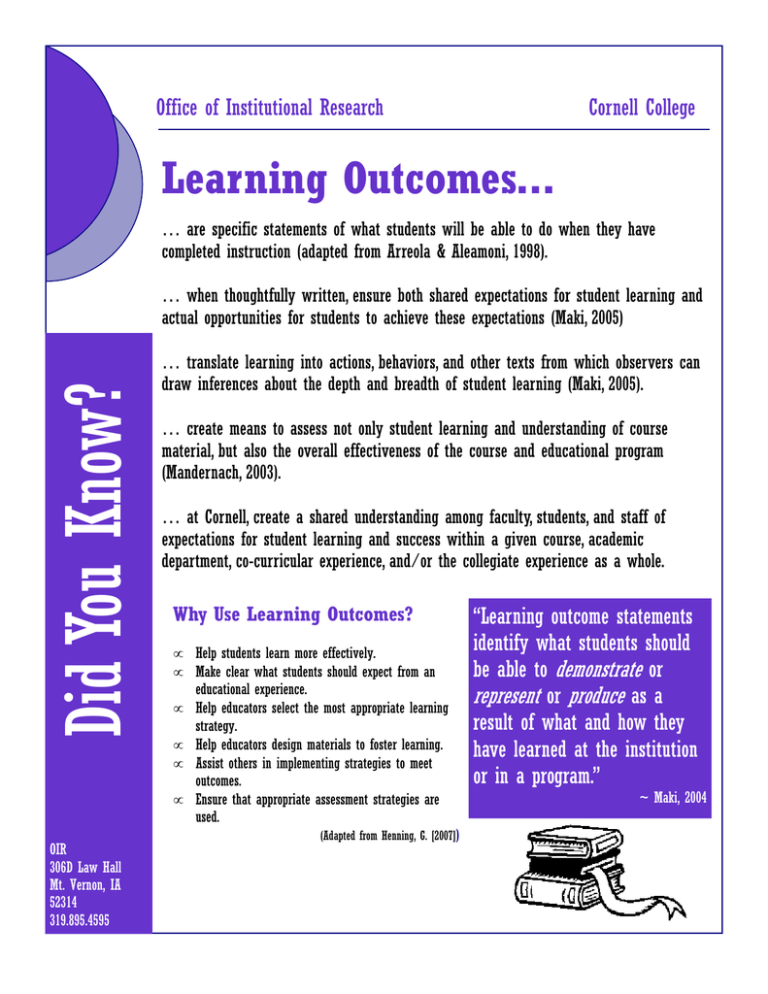
Office of Institutional Research Cornell College Learning Outcomes... … are specific statements of what students will be able to do when they have completed instruction (adapted from Arreola & Aleamoni, 1998). Did You Know? … when thoughtfully written, ensure both shared expectations for student learning and actual opportunities for students to achieve these expectations (Maki, 2005) OIR 306D Law Hall Mt. Vernon, IA 52314 319.895.4595 … translate learning into actions, behaviors, and other texts from which observers can draw inferences about the depth and breadth of student learning (Maki, 2005). … create means to assess not only student learning and understanding of course material, but also the overall effectiveness of the course and educational program (Mandernach, 2003). … at Cornell, create a shared understanding among faculty, students, and staff of expectations for student learning and success within a given course, academic department, co-curricular experience, and/or the collegiate experience as a whole. Why Use Learning Outcomes? ∝ Help students learn more effectively. ∝ Make clear what students should expect from an educational experience. ∝ Help educators select the most appropriate learning strategy. ∝ Help educators design materials to foster learning. ∝ Assist others in implementing strategies to meet outcomes. ∝ Ensure that appropriate assessment strategies are used. (Adapted from Henning, G. [2007]) “Learning outcome statements identify what students should be able to demonstrate or represent or produce as a result of what and how they have learned at the institution or in a program.” ~ Maki, 2004 Examples of Learning Outcomes ∝ Students will be able to evaluate psychological research critically. ∝ Students will identify prevalent cultural and socioeconomic conditions. ∝ Students will be able to collect, organize, and analyze biological data and apply this data to a pertinent biological problem. Statements that are NOT Learning Outcomes Components of a Learning Outcome... ∝ Description of what students will be able to do– a specific verb ∝ Conditions under which the student will perform the task ∝ Criteria for evaluating student performance (Arreola & Aleamoni, 1998) ∝ Students will be exposed to psychological research. ∝ Students will be offered an opportunity to explore current cultural and socioeconomic conditions. ∝ Students will perform experiments and form conclusions. Good Outcome Statements ∝ Focus on measurable student behavior. ∝ Translate intentions into actions. ∝ Use simple, specific action verbs such as those listed for Bloom’s Taxonomy of Learning. ∝ Avoid vague phrases such as “have an understanding of,” which are difficult to measure. ∝ State desired performance criteria. ∝ Describe what students should demonstrate or produce. ∝ Align with other intentions (institutional, departmental). ∝ Indicate appropriate assessment methods to measure achievement of learning outcomes. ∝ Are collaboratively authored. ∝ Map to practices. ∝ Reflect / complement national criteria. Adapted from Maki (2004) & UNC School of Pharmacy Bloom’s Taxonomy of Learning and Descriptive Verbs for Expressing Performance Expectations ∝ Knowledge: recall or recognition of information, principles, or ideas ∂ arrange, cite, define, duplicate, identify ∝ Comprehension: interpretation of material based on prior learning ∂ classify, convert, describe, discuss, explain ∝ Application: use of principles to solve a problem with minimal directions ∂ apply, implement, utilize, operationalize ∝ Analysis: relation of evidence to a hypothesis or concept ∂ analyze, correlate, differentiate, distinguish ∝ Synthesis: combination of ideas into a unique or proposal ∂ arrange, assemble, communicate, propose ∝ Evaluation: assessment on the basis of specific criteria ∂ appraise, assess,, score, evaluate adapted from Persky, 2005
